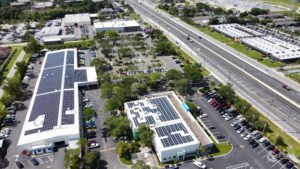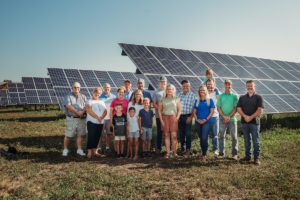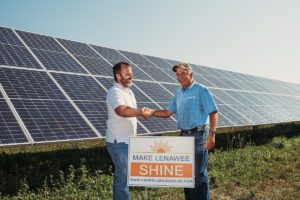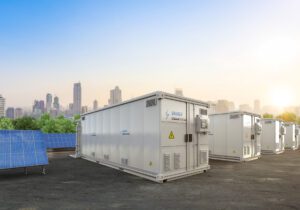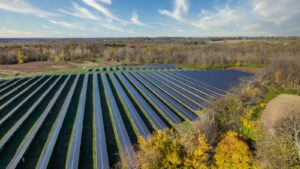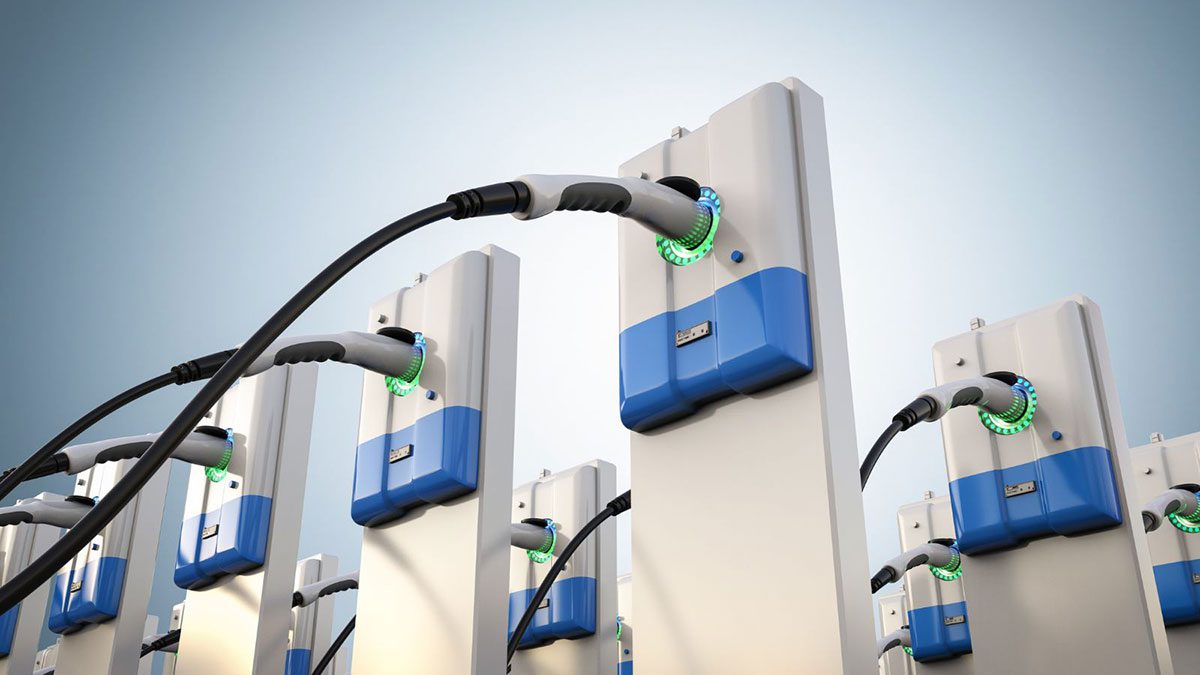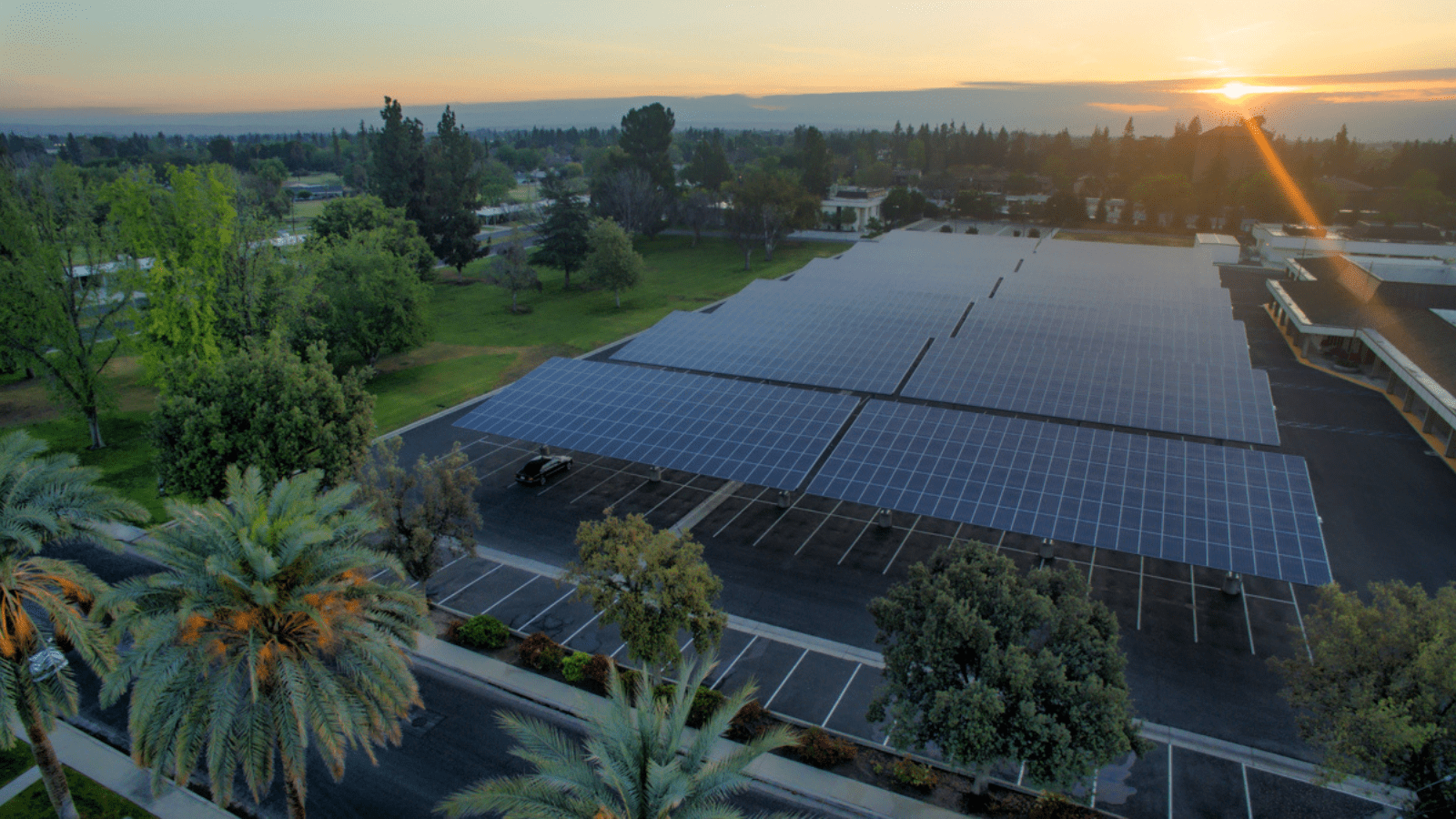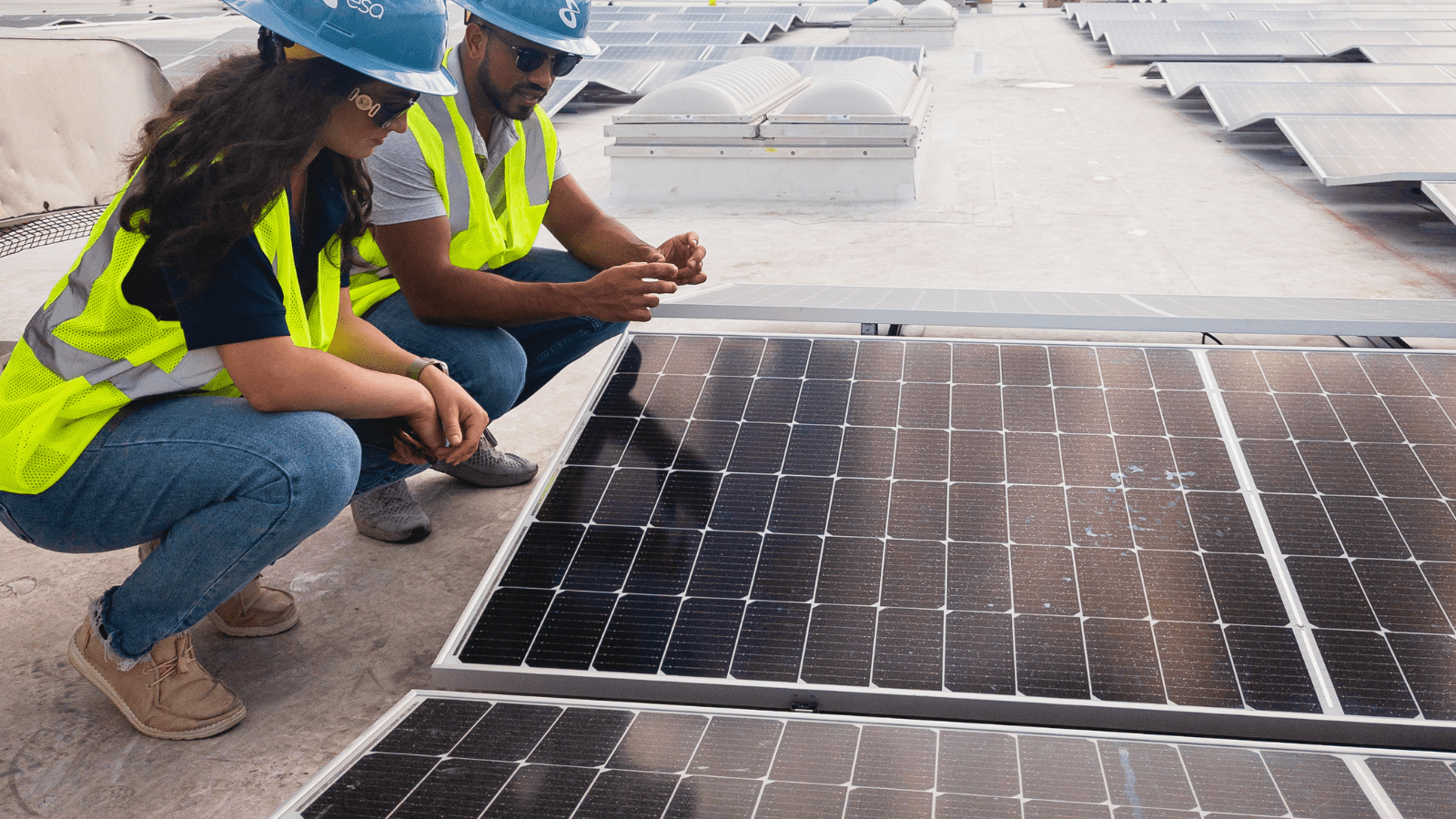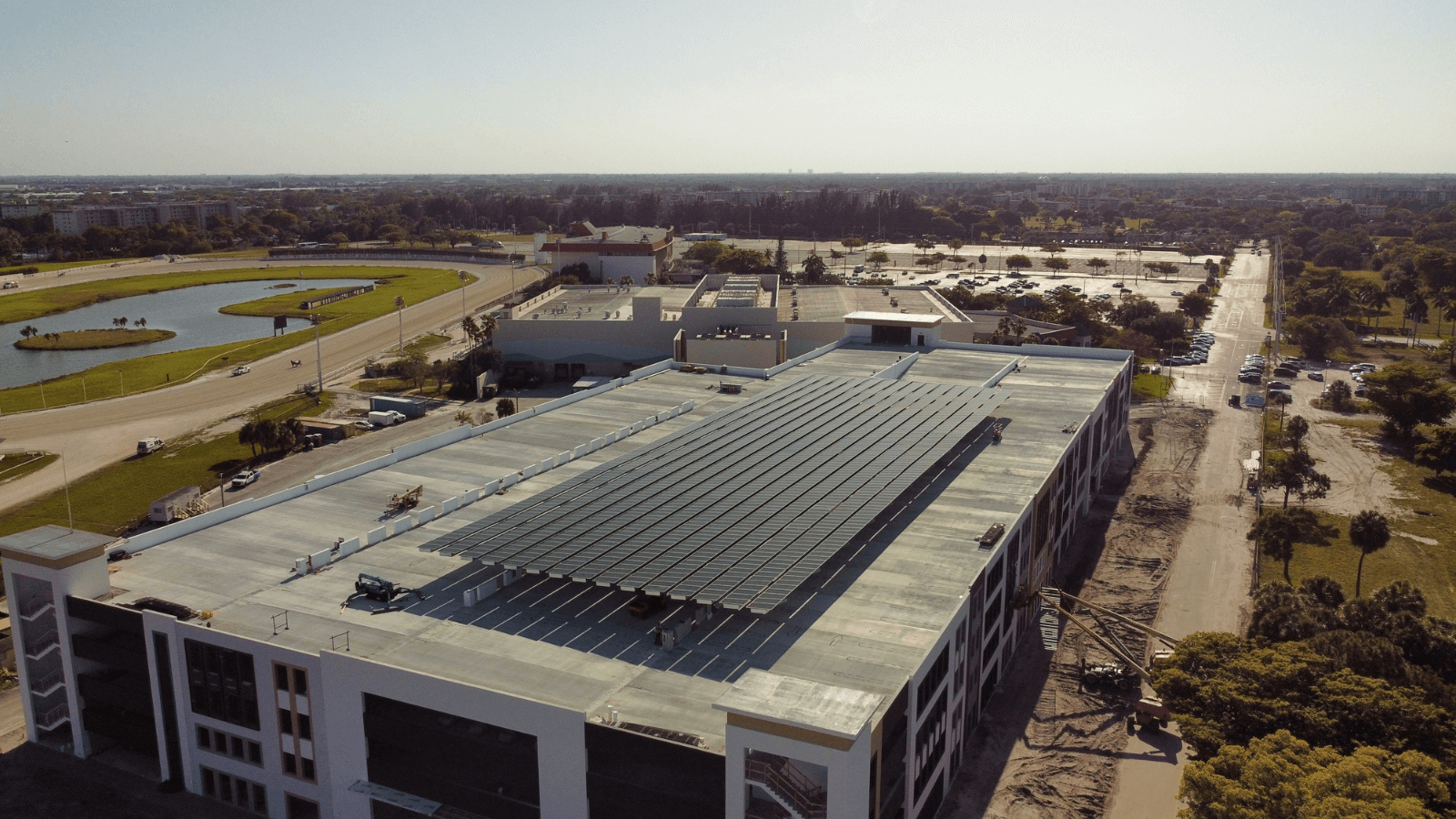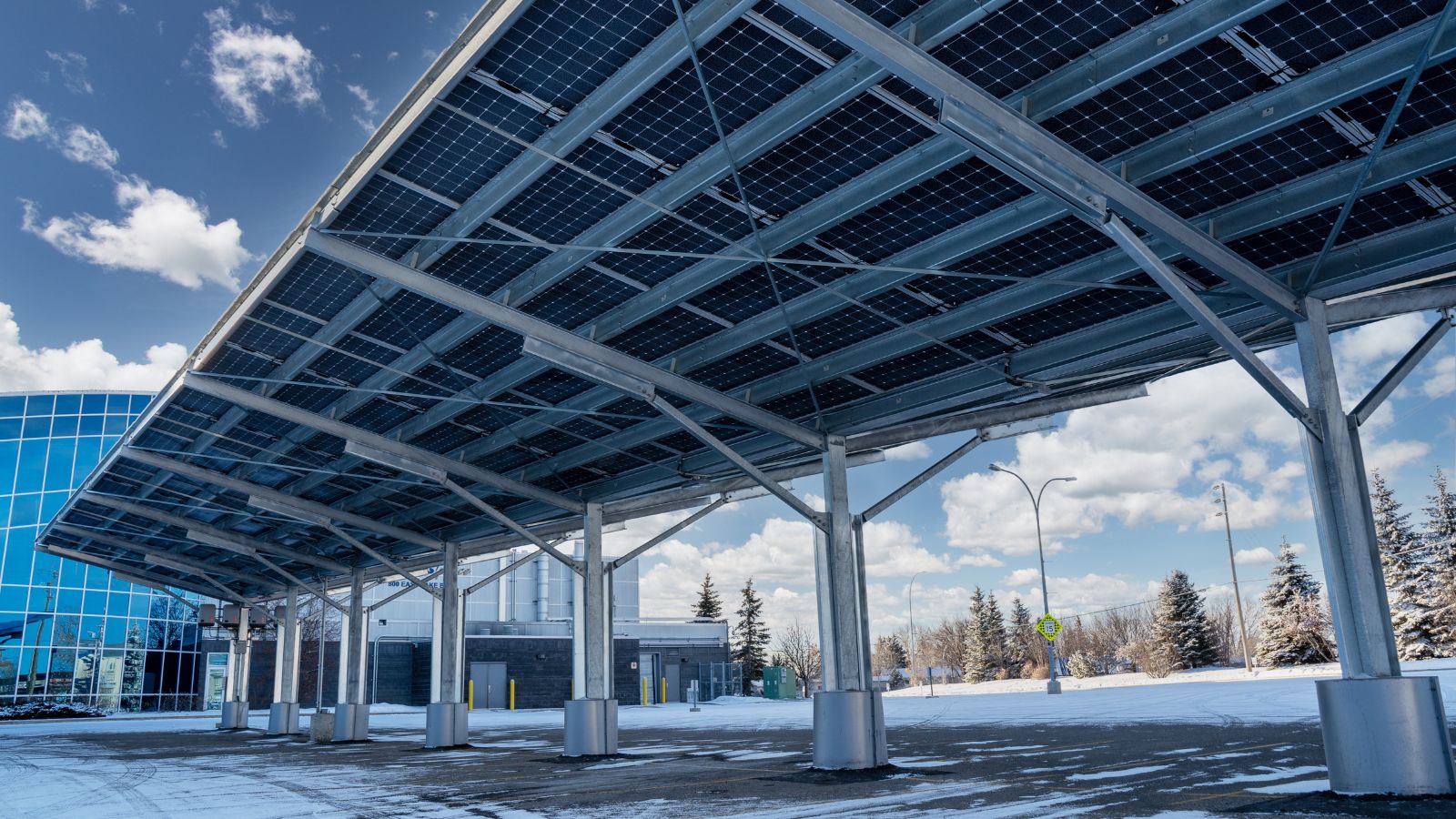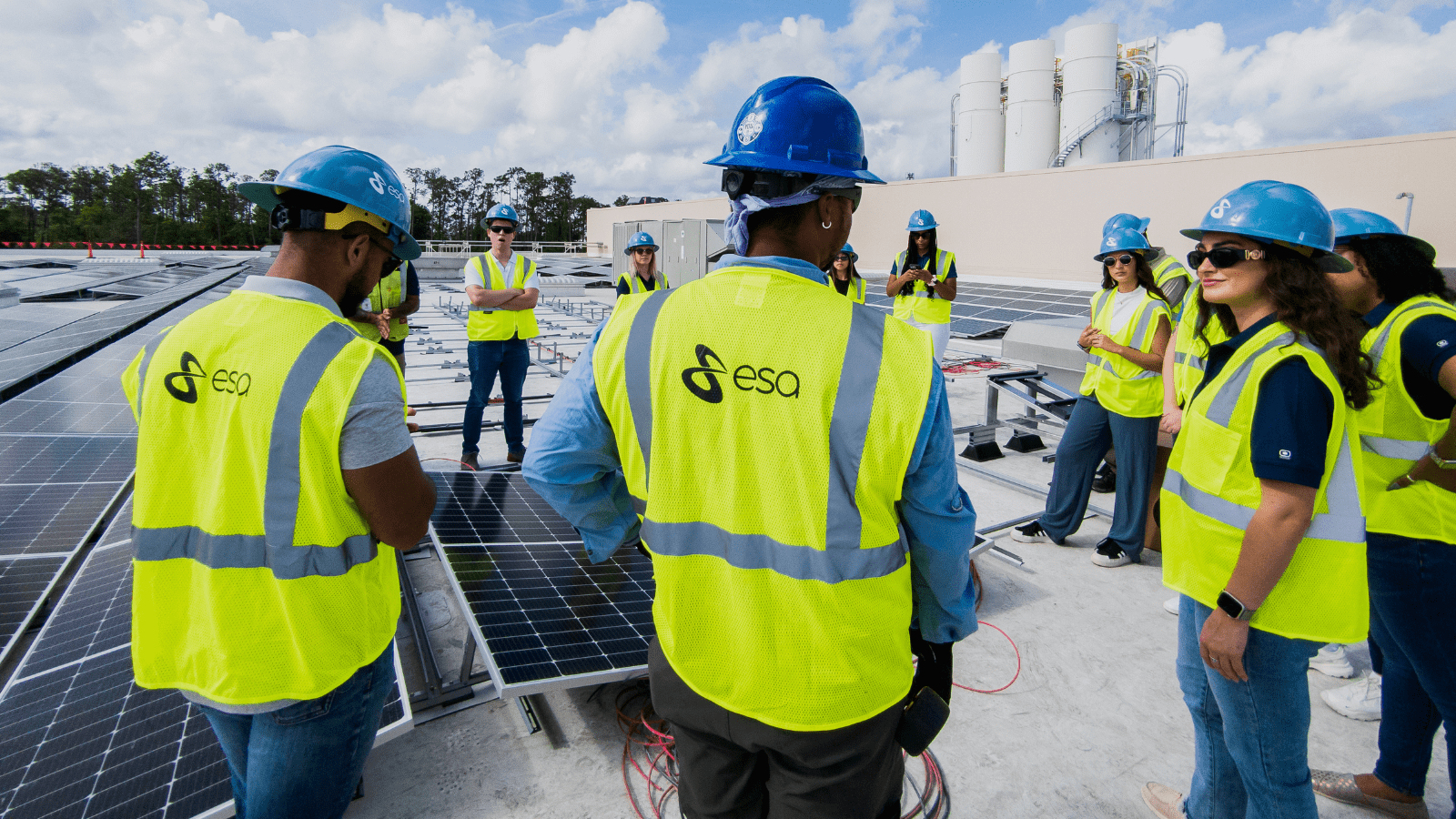By 2050, 75% of cars on U.S. roads are expected to be electric vehicles (EVs), according to Forbes. The shift towards EVs is gaining momentum as awareness of climate change and the environmental drawbacks of gasoline vehicles grows.
People are turning to EVs as a greener alternative, aiming to lower carbon emissions and combat pollution.
However, the widespread adoption of EVs faces hurdles, notably the need for more accessible charging stations.
The scarcity of EV chargers has prompted action from the private sector, with forward-thinking business owners installing chargers on their property. This move not only serves environmental goals but also positions these businesses as leaders in sustainability, attracting eco-conscious customers.
By integrating EV charging facilities, businesses can tap into a new revenue stream, charging fees for the use of their chargers.
This initiative helps businesses stand out, offering added value to customers who own EVs and are often in search of convenient charging options.
It addresses a critical need, removing one of the significant barriers to EV adoption and facilitating a smoother transition to sustainable transportation.
Governments and municipalities are also recognizing the importance of expanding the EV charging network to support this transition. More incentives and financial help are also being given to support the installation of EV charging stations.
The expansion of EV charging infrastructure by businesses not only contributes to environmental sustainability but also enhances customer service, providing a clear competitive advantage in today's market.
As the demand for EVs continues to rise, the availability of charging options will play a crucial role in shaping the future of transportation, making it greener and more sustainable
By offering EV chargers in their parking lots, businesses also gain a competitive edge by providing a solution to a common problem faced by many customers.


What are EV chargers?
EV chargers, also known as electric vehicle charging stations or EVSEs (Electric Vehicle Supply Equipment), are devices designed to recharge electric vehicles.
Available in a range of shapes, sizes, and power levels, these chargers are versatile to meet different needs.
They can be installed in residential settings for private use, in public areas like shopping centers, parks, and on streets to facilitate access for all EV owners, or at workplaces, providing employees with the convenience of charging their vehicles while they work.
The installation of EV chargers is seen as a step towards environmental sustainability, reducing reliance on fossil fuels and lowering greenhouse gas emissions.
As the adoption of electric vehicles continues to rise, the expansion of the charging infrastructure becomes increasingly important, encouraging more people to transition to electric vehicles for their transportation needs.
How do EV chargers work?
Simply put, an EV charger draws electricity from a 240v outlet or the connected power grid and transfers it to the electric vehicle, similar to how you charge any other device by plugging it into a wall.
When you plug your EV into a charging station, the station sends a signal to your car's onboard charger to begin the charging process. The onboard charger then converts the AC electricity from the charging station into DC electricity that can be stored in the battery.
The charging station monitors the battery's state of charge and adjusts the charging rate to ensure that the battery is charged safely and efficiently.
Types of EV chargers
People often ask ‘what is the difference between type 1 and type 2 EV chargers?’
There are three main types of EV chargers: Level 1, Level 2, and Level 3.
Level 1 Chargers
Level 1 chargers are the slowest of the three, providing up to 4 miles of range per hour of charging. They typically plug into a standard 120-volt outlet, which means they can be used at home or in a public setting with a regular electrical outlet. Level 1 chargers are most useful for people who only need to charge their EV overnight and have a short commute. In other words, think of it as a home EV charger.
Level 2 Chargers
Level 2 chargers are considerably faster than Level 1 chargers, providing up to 25 miles of range per hour of charging. These chargers rely on a 240-volt electrical supply, similar to what many household appliances use. Level 2 chargers are commonly found in public locations like business parking lots, serving as the most prevalent type of charging station.
Level 3 Chargers (Fast EV Chargers)
Level 3 chargers, also called DC fast chargers, offer the highest charging speed, providing up to 100 miles of range in just 30 minutes of charging. These chargers require a 480-volt electrical supply. They are primarily intended for long-distance travel and are typically located at rest stops, gas stations, and other public areas. These are typically less common than level 2 chargers throughout the U.S.
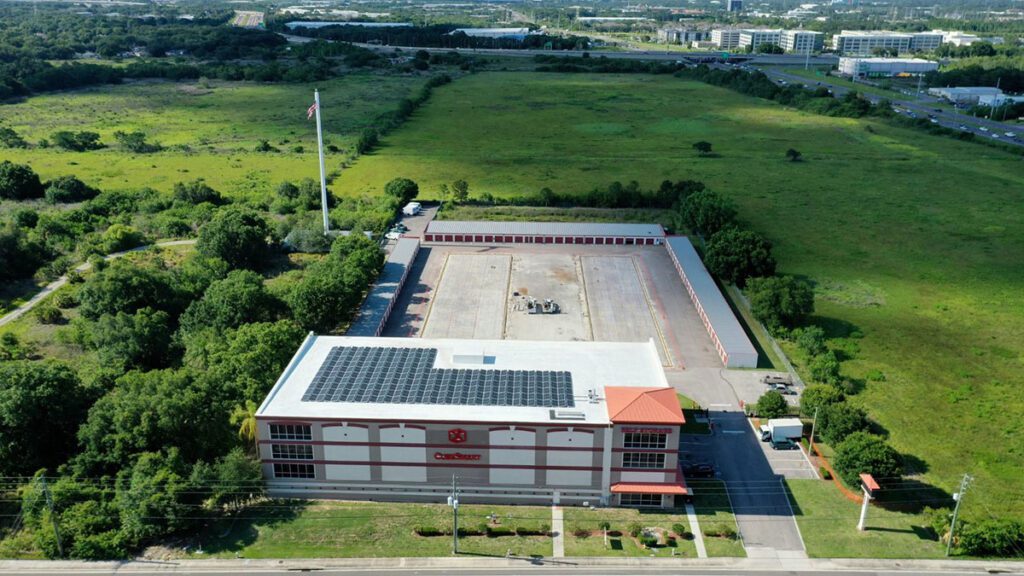

Pairing EV chargers with solar energy
The EV Charging Action Plan, announced by the Biden Administration, aims to have 500,000 EV chargers in the US with $7.5 billion in funding. Commercial building owners have the potential to qualify for funding based on how it is managed in each state. If EV charging stations are installed along with a solar array, owners may also be eligible for financial incentives for both systems.
The integration of solar energy and electric vehicle (EV) charging in commercial and industrial buildings presents significant opportunities for sustainable and cost-effective operations.
This would work by using solar panels to generate clean electricity during the day, which can be stored in batteries or fed back into the grid. The energy can then be used to power EV charging stations.
This dual approach offers several advantages.
It allows businesses to reduce their carbon footprint by utilizing clean energy for both their own electricity needs and for charging EVs, which will result in the reduction of your scope 2 emissions.
It provides a reliable and consistent power source, which can help mitigate energy costs and diminish dependency on the grid.
By offering EV charging stations, commercial and industrial buildings can attract environmentally conscious customers, employees, and tenants who value sustainable practices.
The combination of solar energy and EV charging represents a win-win solution, promoting clean transportation while driving the transition toward a greener and more sustainable future.
EV chargers for parking lots
New Revenue Stream
- Charging customers based on their usage is the best approach to maximize revenue from EV charging stations. In regions where chargers are in high demand, customers are willing to pay for the convenience of charging their vehicles while on the move.
- A survey by E Source revealed that EV owners are prepared to pay as much as $3 per hour for charging, and 12 percent of them are even willing to pay $4 per hour.
- The ease of overcoming range anxiety, a term used by EV owners that expresses the worry that their battery will run out of power before the destination or a suitable charging point is reached, makes the expense of having convenient EV charging stations away from home worthwhile. It is reported that 7% of EV owners stated that the cost is irrelevant when they need to charge their vehicles.
Attracts customers and Benefits Employees
- By buying EV chargers and installing them in your parking lot, you not only offer convenient service for customers on the go but also make a lasting impression on them. This will attract a significant amount of foot traffic to your business. Moreover, while EV owners charge their vehicles at your facility, you have the opportunity to engage in conversation, introduce them to your company, and potentially convert them into loyal customers.
- EV chargers for office use can be highly beneficial for your employees, especially those who live in apartments or lack access to overnight charging facilities. By offering EV charging stations as an employment perk, you can attract and retain talented employees. Consider investing in EV chargers for your office to provide convenient charging access and enhance employee satisfaction.
Meet the demand for EV sales
- As highlighted previously, the Biden administration has set a target of deploying 500,000 EV chargers in the US by 2030, supported by $7.5 billion in funding. This initiative reflects the need to meet the growing demand for EV sales. In fact, it is projected that EVs could make up more than 50% of new car sales by 2030, and this figure is expected to further rise in the coming years. It is evident that the time has come to address the increasing demand for EVs and ensure that the necessary infrastructure is in place to aid the widespread adoption of electric vehicles.
- The increasing demand for electric vehicle (EV) sales has a big impact on auto dealerships. They need to adapt to this trend by offering more EV models and charging stations. However, there's a benefit too. Dealerships can install solar panels to generate their own clean energy. This helps them save money on electricity bills and shows their commitment to the environment. So, by meeting the EV demand and using solar power, auto dealerships can succeed in the shift towards greener transportation.
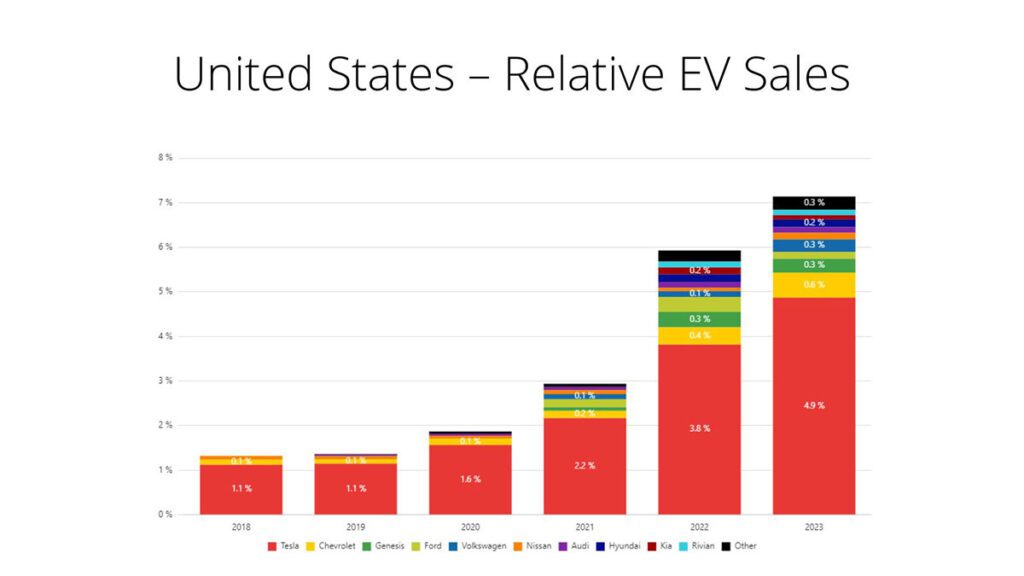

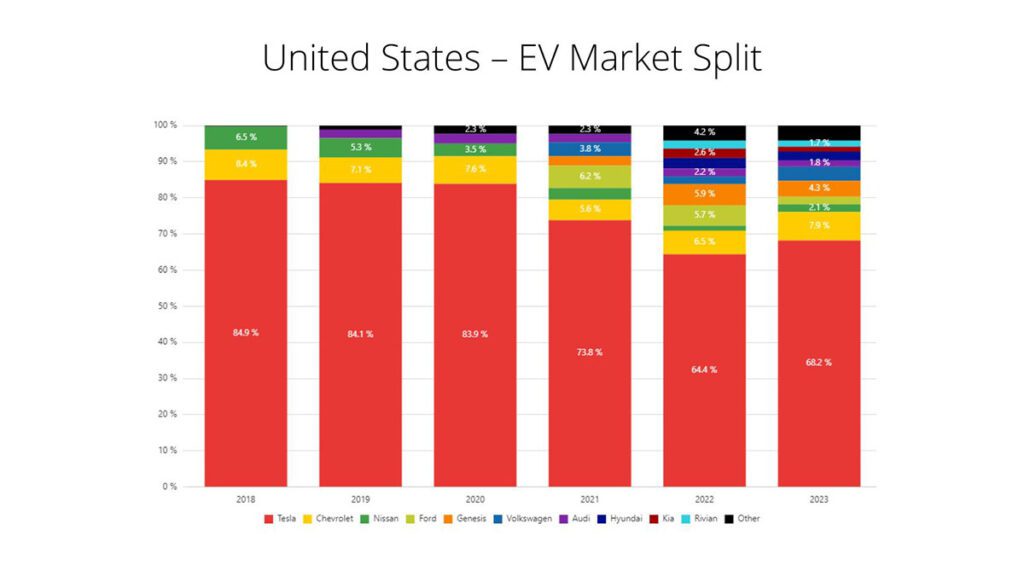

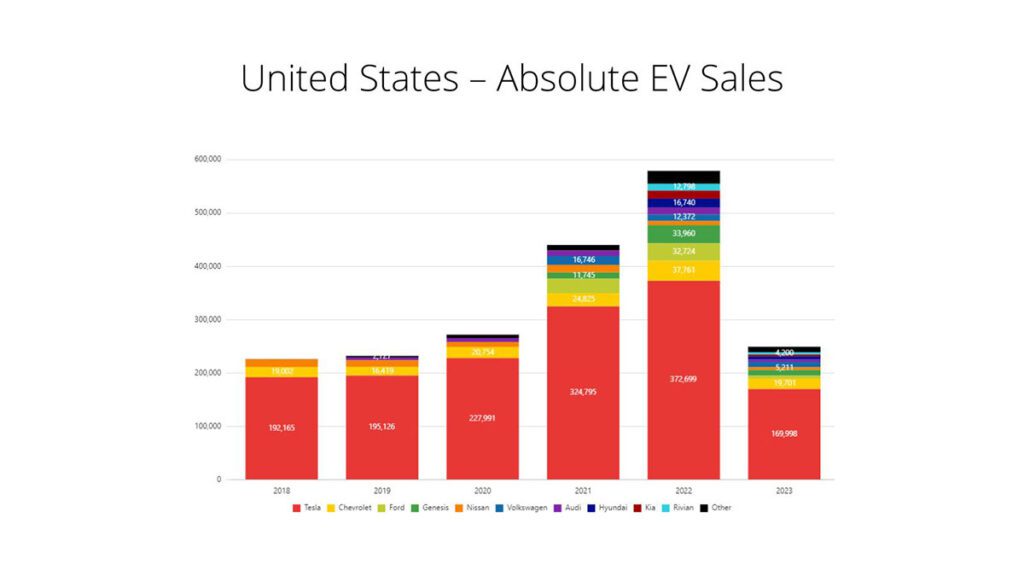

The Future Of Electric Vehicles
EV chargers represent the future of the automotive industry. European lawmakers even want to completely ban all new future gas-powered vehicle sales by 2035. The U.S. has a similar goal, except they want to ban 50% of new sales by 2035.
However, this will not be possible unless there are more charging stations available. In contrast to states like California, where electric vehicle owners can confidently travel between cities without concern about locating a charger, states like Texas lack a sufficient infrastructure of EV charging stations.
Tesla has played a pivotal role in popularizing electric vehicles, but their chargers have been exclusive to Tesla cars and cannot be used with other EV brands. Tesla's network accounts for roughly 60% of the fast chargers in the country. To address the shortage of EV chargers, Tesla has committed to building 7,500 chargers across the United States by the end of 2024 that will be compatible with other brands of electric vehicles.
Not only that, Ford, Rivian, and GMC are partnering with Tesla to create electric vehicles that can be charged with a Tesla supercharger. These initiative aims to establish a standardized charger for electric vehicles, easing range anxiety for EV owners.
In the near future electric vehicle drivers will search for “EV chargers near me,” just like gas stations, and be able to have a comfortable amount of options around them, with a variety of businesses being able to meet that demand.
While fossil fuels will continue to be utilized for transportation, it’s important to diversify the transition to EVs with the right infrastructure, finding as many ways as possible to have easy access to chargers that source their electricity from solar and other types of clean energy.
Sources:
- Technology, Energy Innovation: Policy and. “Seventeen States Could Accelerate U.S. Electric Vehicle Sales To 75% By 2050.” Forbes, https://www.forbes.com/sites/energyinnovation/2023/04/10/seventeen-states-could-accelerate-us-electric-vehicle-sales-to-75-by-2050/.
- Tobias, Michael. EV Chargers: The Ideal Complement for a Commercial Solar Array. https://www.ny-engineers.com/blog/ev-chargers-the-ideal-complement-for-a-commercial-solar-array.
- Pairing Solar with Managed EV Charging for Distribution Grid Benefit, betterenergy.org/blog/pairing-solar-with-managed-ev-charging-for-distribution-grid-benefit/.
- Crossno, Tyler. “Solar & EV Charging for Commercial & Industrial Buildings.” Revel Energy | Commercial Solar Energy Solutions, 26 Jan. 2022, https://revel-energy.com/solar-ev-charging-for-commercial-buildings/.
- “Are Electric Car Charging Stations Profitable?” EV Connect, https://www.evconnect.com/blog/electric-car-charging-stations-profitable.
- “Retail Co-Location May Prove Key to Sustainable Funding for EV Charging, Panel Finds.” Utility Dive, https://www.utilitydive.com/news/retail-co-location-may-prove-key-to-sustainable-funding-for-ev-charging-pa/578744/.
- Ghilino, Andrew. “Let EV Charging Put Your Parking Lot to Work for Your Business.” FSG Electric & Lighting, 25 May 2022, https://fsg.com/ev-charging-your-parking-lot-work-for-your-business/.
- Over 50 Percent of New Car Sales Will Be Evs by 2030: Report - GM Authority, gmauthority.com/blog/2022/09/report-says-over-50-percent-of-new-car-sales-will-be-evs-by-2030/.
Vena, Danny. “Rivian Joins Ford and GM on Tesla’s Supercharger Network. Will Other Automakers Follow?” The Motley Fool, 21 June 2023, https://www.fool.com/investing/2023/06/21/rivian-joins-ford-and-gmc-on-teslas-supercharger-n/.

